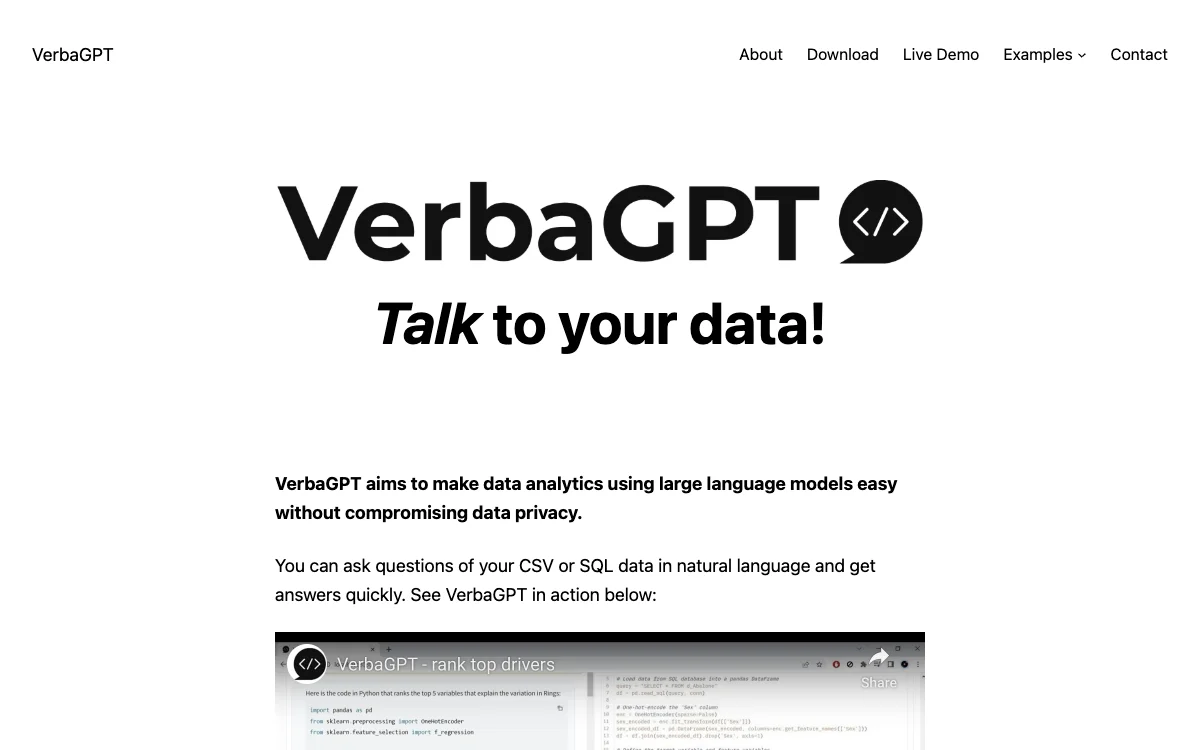VerbaGPT revolutionizes data analytics by leveraging large language models (LLMs) to facilitate natural language queries on CSV or SQL data, all while prioritizing data privacy. This innovative tool allows users to interact with their data in a conversational manner, making complex data analysis accessible to non-experts. With VerbaGPT, you can perform a wide range of data operations, from simple aggregations to complex queries, data modeling, and even generate plots, without ever compromising your data's security.
One of VerbaGPT's standout features is its commitment to data privacy. Unlike other AI tools that require data to be uploaded to external servers, VerbaGPT operates locally on your hardware. This ensures that your sensitive information remains under your control, with only the database schema—such as table and column names—being shared with the LLM. This unique architecture guarantees that your data never leaves your premises, providing peace of mind for businesses and individuals alike.
Looking ahead, VerbaGPT plans to incorporate local models like LLama, enabling completely offline analytics. This development will further enhance the tool's privacy features, making it an even more attractive option for those concerned about data security.
VerbaGPT is designed with simplicity and intuitiveness in mind. It abstracts the complexity of generative AI, allowing users to focus on extracting valuable insights from their data. Whether you're a data scientist looking to streamline your workflow or a business professional seeking to make data-driven decisions, VerbaGPT offers a user-friendly interface that caters to all skill levels.
To see VerbaGPT in action, users can explore live demos and example videos available on the website. These resources showcase the tool's capabilities, from generating reports to performing advanced data modeling and visualization. With regular updates and new features on the horizon, VerbaGPT is poised to become an indispensable tool for anyone looking to harness the power of AI for data analytics.

